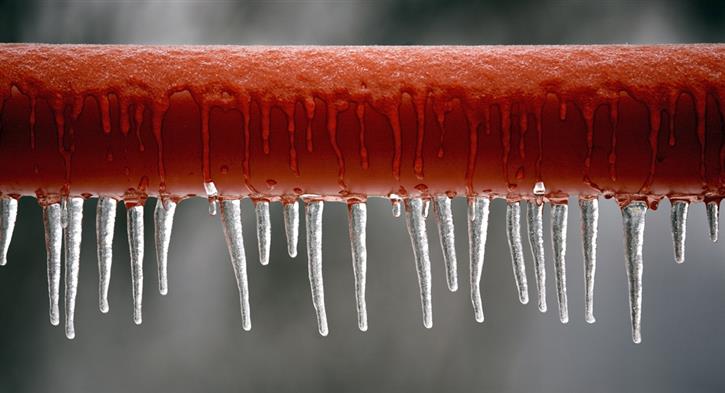

During the cold weather, pipes can become frozen and in some circumstances burst. This can result in considerable inconvenience and damage to property and can be expensive to repair. By understanding how to prevent frozen pipes in the first place, you can reduce the risk and help to keep your property safe this winter.
The problem of frozen pipes
There is a range of reasons why pipes can freeze during the winter. The most common problems are:
A frozen pipe can burst if you’re not careful, but this doesn’t usually occur at the point of the ice blockage. Pipes can burst in cold temperatures due to the water inside freezing and then expanding. When the water freezes and expands regularly, it can build up the pressure between the closed faucet and the blockage. This continual pressure eventually causes the pipe to burst.
How to prevent frozen pipes
There are a few simple tips that you can use to prevent your pipes freezing this winter:
1. Use insulation
Having your water tanks and loft insulated sufficiently will keep your pipes warmer. You should also insulate the actual pipes by wrapping lagging around them.
2. Keep the house warm
With modern boilers there will usually be a frost protection feature which automatically switches on when the temperature falls to a point where pipes could freeze. It’s important that this is functioning correctly. When the weather is particularly cold, you should keep the sink cupboard and loft doors open to enable heat to get in. You should also have your heating set to stay on a low temperature or to go on and off during the day, even if you’re away for a few days.
3. Know where your stopcock is
It’s important to be able to get to and switch off your stopcock if there is an emergency and your pipes do burst. Ensure that this can be easily turned off and that everyone knows where to find it.
4. Check your pipes
It’s a good idea to have someone check your pipes and keep an eye on your property if you’re away during the winter. This will highlight any problems and reduce the risk of an emergency.
5. Introduce a circulating pump
Adding a circulating pump into the water system is a very effective way to prevent pipes from freezing. Installing a circulation system means that the water from the ‘hot’ side of the system gets sent to the ‘cold’ side. Therefore, this reduces the chances of water pipes freezing as the temperature of the water never reaches the critical freezing point.
6. Keep up with maintenance
A dripping tap can freeze in cold weather and cause a blockage in your pipes. It’s vital to keep up with maintenance throughout the year and replace any worn-out washers as soon as possible.
These steps can help to prevent your pipes from freezing and bursting this winter. However, if the worst does happen and you do suffer a burst pipe, you should have a plan in place of what to do and who to contact to reduce the amount of damage that is caused.
If you'd like to keep up-to-date with the latest developments in the heating and plumbing industry, why not subscribe to our weekly newsletters? Just click the button below and you can ensure all the latest industry news and new product information lands in your inbox every week.